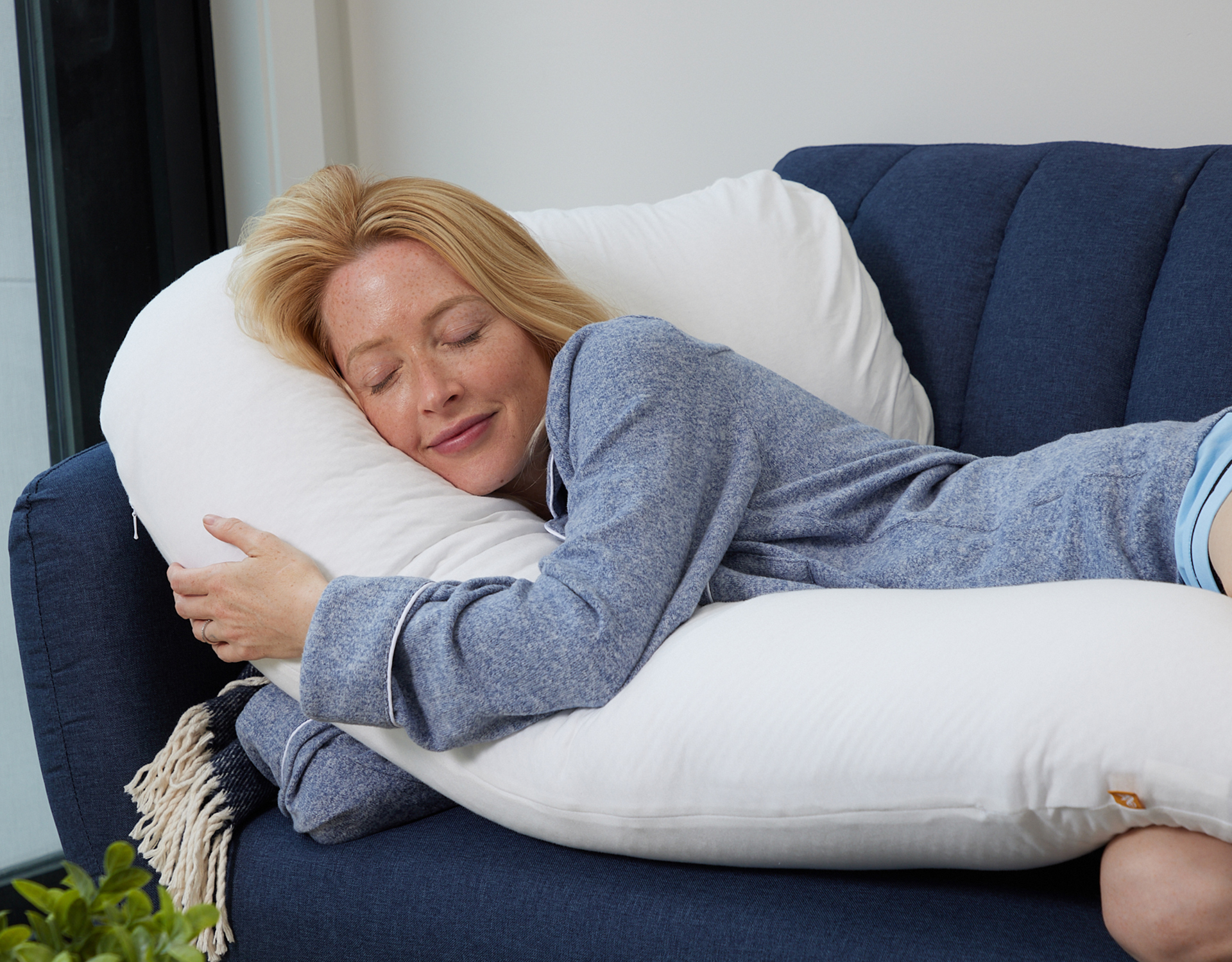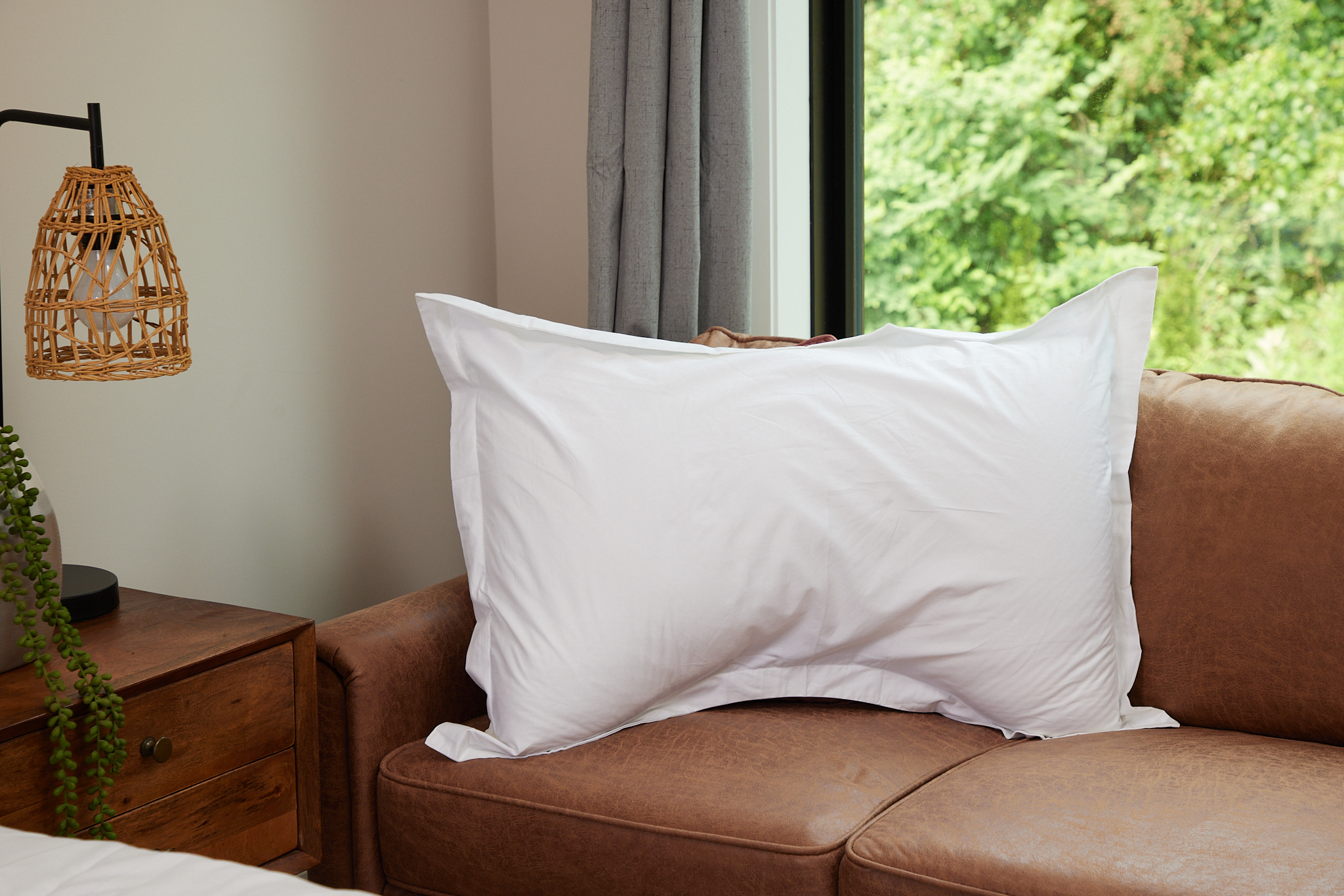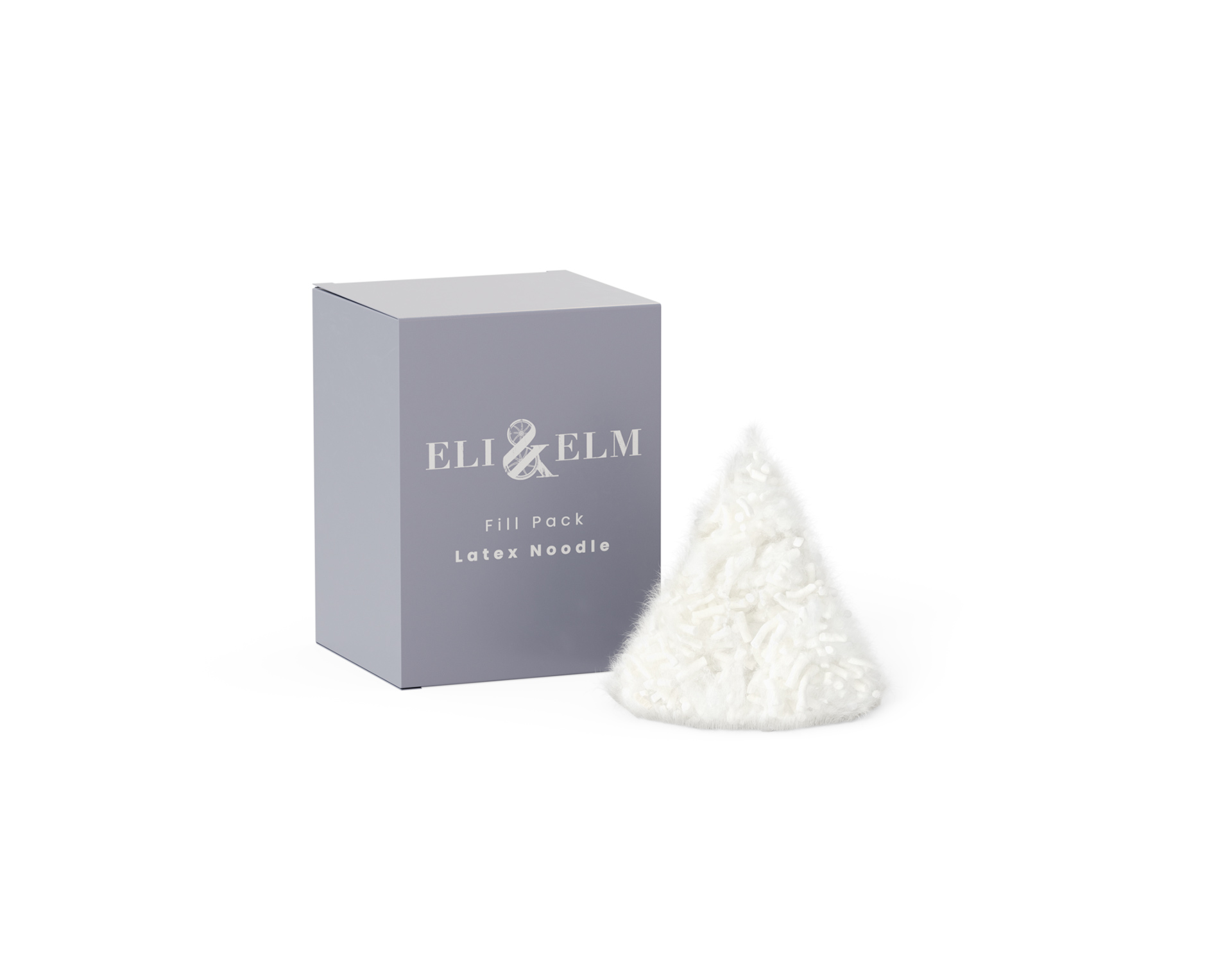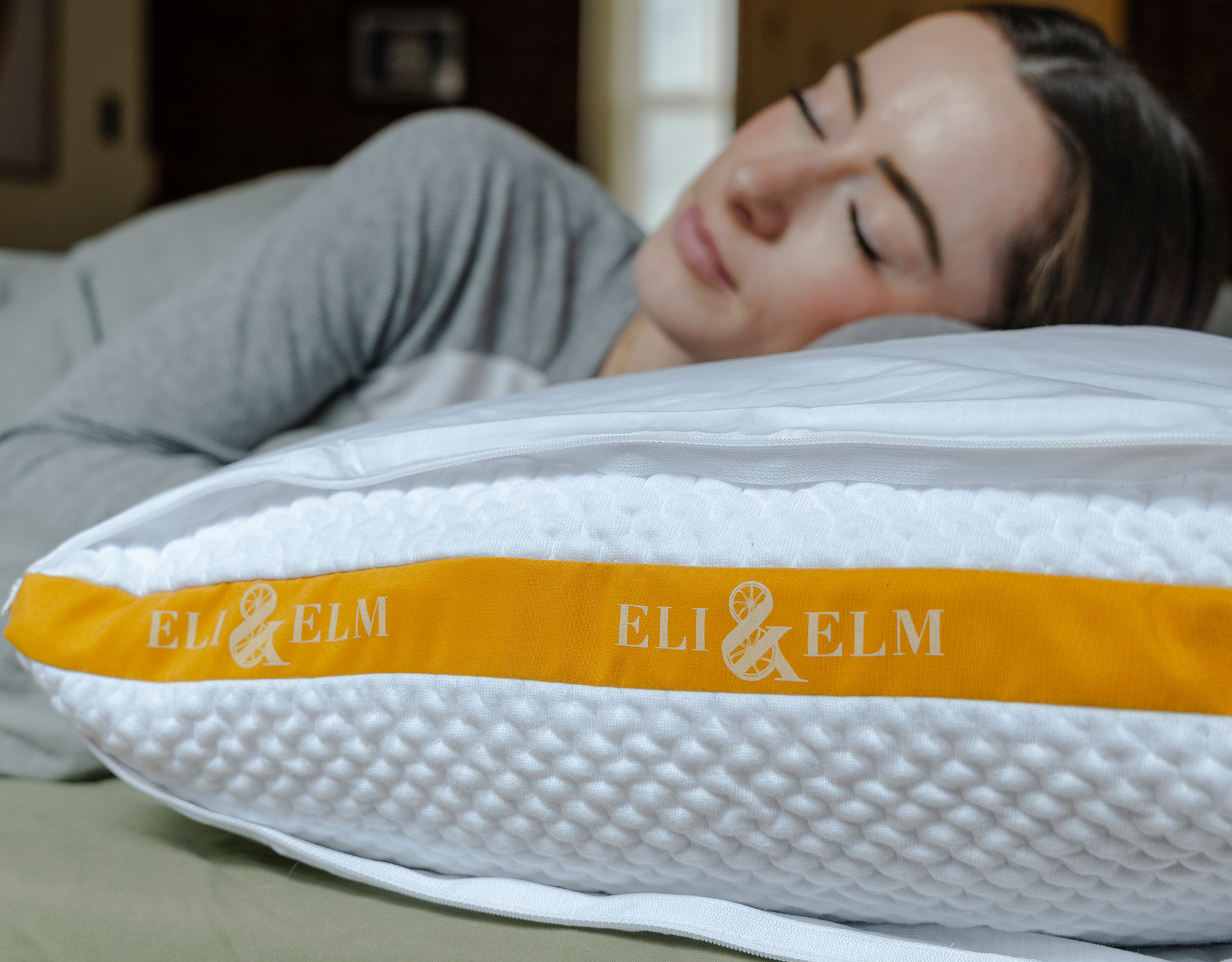Pregnancy is a beautiful experience yet, at the same time, a very difficult one. With the body undergoing all the changes to make room for the baby, most women suffer aches and pains, particularly in the hips. According to research, about 50-70% of pregnant women complain of back pain or pelvic girdle pain, which includes hip pain.
This blog will examine what causes most hip pain during pregnancy and how to relieve and manage it. If you are pregnant and suffering from hip discomfort, continue reading to find relief and maybe make your pregnancy a little less painful.
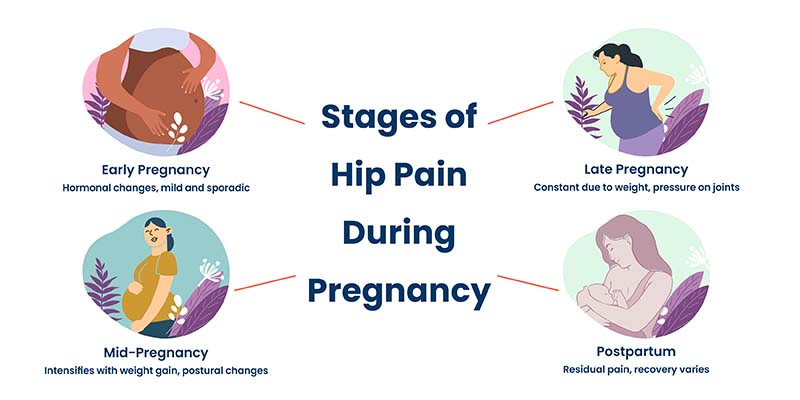
What are the Causes of Hip Pain During Pregnancy?
Here are the common causes of hip pain during pregnancy:
1. Hormonal Changes: When a woman is pregnant, her body ramps up its production of relaxin. This hormone loosens the pelvis's ligaments and joints to prepare the body for giving birth. But it can also make the hip ligaments loose and wobbly, resulting in hip pain.
2. Weight Gain: The increasing size of the baby and uterus puts extra pregnancy weight and pressure on the hips, which causes discomfort and pain. This happens in the final months of pregnancy when the baby weighs the most.
3. Posture Changes: As the belly expands, pregnant women change their center of gravity, leading to shifts in posture. This change can stress the hip muscles and joints, resulting in pain and discomfort.
4. Round Ligament Pain: The round ligaments on either side of the uterus that pull down to the groin/pubic bone area. The round ligaments are stretched and strained as the uterus expands to accommodate the growing baby, thus causing sharp, shooting pains in the hips.
5. Sciatica: The sciatic nerve runs down the back of the legs, and when pregnant, it can get compressed or pinched and cause shooting pains from the hips down the legs.
6. Pelvic Girdle Pain (PGP): PGP stands for pubic symphysis dysfunction, a condition that affects the pelvic joints and is very common in pregnancy. It is defined as pain or discomfort in the pelvic region, which includes the hips.
7. Previous Injuries: Women with prior problems or hip injuries will also experience more pain and discomfort when pregnant. Because the joints are already compromised, the extra weight and pounding run only hurt that much more.
When Does Hip Pain Start?
For many women, hip pain can begin as early as the first trimester and can last the entire pregnancy. As your body changes during pregnancy, it starts immediately for some but begins in the second or third trimester for others. Every woman's body and pregnancy are different, so it's hard to tell when the hip pain is supposed to start.
Some women may also experience hip pain due to pre-existing conditions such as sciatica, arthritis, or hip dysplasia. In these cases, pregnancy can exacerbate the pain and discomfort in the hips.
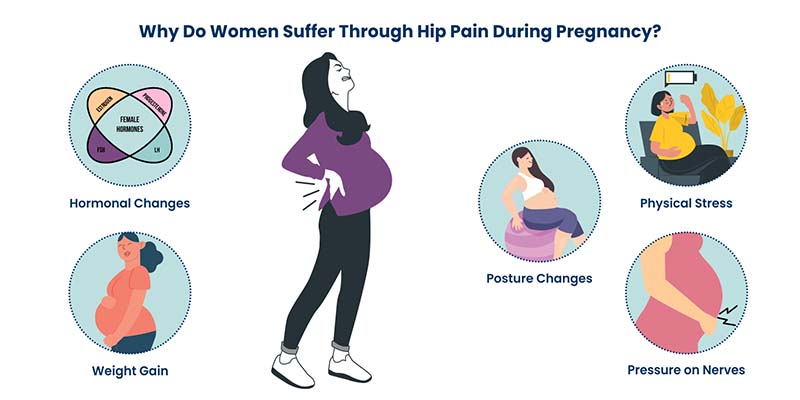
Home Remedies to Alleviate Hip Pregnancy
While it is essential to consult your doctor for severe pain, some home remedies can help alleviate hip aches during pregnancy. Let's look at a few of them.
1. Warm Compress: A heating pad on the hip will also relax the muscles and help with hip pain relief. A hot water bottle or a heating pad will do. Wrap the compress in a towel so it's not directly on the skin. Leave on for 10 - 15 minutes, 2 or 3 times daily.
2. Gentle Exercise: Exercise may be the last thing on your mind when dealing with hip pain, but specific gentle exercises can help alleviate the discomfort. Prenatal yoga, swimming, and walking keep those hip and pelvic muscles strong and flexible. Check with your doctor or a certified prenatal fitness instructor before embarking on any exercise program.
3. Practice Good Posture: As your belly expands, your center of gravity moves, and your hips must support all that extra weight; this can cause strain and pain. Maintaining good posture during pregnancy can help distribute the weight evenly and reduce pressure on the hips. Don't stand or sit still too long; sit up straight.
4. Use a Pregnancy Pillow: A pregnancy pillow can support and relieve pressure on the hips when sleeping. You can use a full-body pregnancy pillow or place a regular pillow between your knees to keep your hips aligned when you sleep on your side.
5. Massage: A nice massage will loosen the muscles and release the tension in the hip region. You can use massage oil or cream and massage the area in circular movements. Always consult your physician before using any massage techniques.
6. Epsom Salt Bath: Adding Epsom salt to a bath will soothe the muscles and decrease inflammation, which will help relieve the pain in the hip. Epsom salt contains magnesium, which has muscle-relaxing properties. To be most effective, take a bath for 15-20 minutes.
7. Acupuncture: Acupuncture is an ancient Chinese therapy that involves the insertion of thin needles into specific points of the body. It is believed to relieve pain and many other ailments by releasing tension and promoting overall well-being.
8. Rest: Giving your body enough rest during pregnancy is essential. Avoid standing or sitting for long periods, and take breaks to lie down and rest. This can help reduce strain on your hips and provide relief from pain.
When to Consult a Doctor for Pregnancy Hip Pain?
Hip pain often comes with pregnancy, but you can manage it by changing your lifestyle a bit and using simple home remedies. If your hip hurts or doesn't stop, you should see a doctor to find out what's wrong and how to treat it.
If the pain gets in the way of your daily life or keeps getting worse, that's a red flag to get medical help. A doctor can check how bad your pain is and give you the right medicine. Lousy hip pain might mean something more serious, like pubic symphysis dysfunction (PSD). This needs quick medical attention to avoid problems.
Another factor to consider is the location of the pain. If the pain originates from the front or back of your hip joints, it's probably because of a muscle or bone issue like sciatica or pelvic girdle pain (PGP). These problems can get worse if you don't treat them, making it hard to move and take care of your baby after giving birth. So, it's crucial to see a doctor before that happens.
Does Using a Pillow for Hip Pain Help?
Using a pillow designed specifically for hip pain while sleeping can be incredibly helpful, especially for side sleepers. During pregnancy, many women experience additional pressure, which results in lower back and hip pain caused by weight gain and how one must carry herself.
A hip pillow for side sleepers provides crucial support by aligning the hips and spine, which helps alleviate strain and pressure points. These pillows are typically designed with materials like memory foam that conform to the body's contours, offering customized support and promoting better sleep posture.
A maternity or hip pillow can significantly decrease discomfort and misalignment, allowing pregnant women a better sleep experience.
Final Thoughts
Hip pain is a part of pregnancy that must be dealt with to ensure comfort and health. Knowing what is causing it (hormones, extra weight) makes it easier to find appropriate cures (light exercise, standing up straight, supportive pillows) is very important. A good pillow makes a world of difference in sleep quality because it offers all the proper support and alignment. So, by using these techniques, pregnant women can relieve their discomfort and have a much more pleasant pregnancy.








